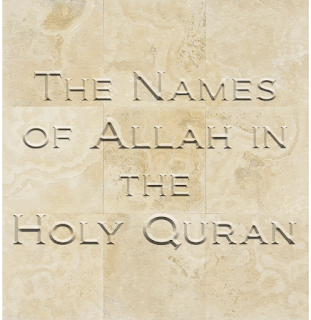Aoudhubillahi min al shaitanir rajeem.
Bismi Allahi Al Rahmani Al Raheemi
Inna Lillahi Wa Inna Ilaihi Rajeun
Ash Shahadu an La Ilaha illa Allah Wa ash shahadu an Muhammedan Abdul Allah Wa Rasul Allah
As Salaamu Alaikum Wa Rahmatullah Wa Barakatuh
My dear respected brothers and sisters in Al Islam
Hasbuna Lahu Wa Nimal Waki
Bismi Allahi Al Rahmani Al Raheemi
Inna Lillahi Wa Inna Ilaihi Rajeun
Ash Shahadu an La Ilaha illa Allah Wa ash shahadu an Muhammedan Abdul Allah Wa Rasul Allah
As Salaamu Alaikum Wa Rahmatullah Wa Barakatuh
My dear respected brothers and sisters in Al Islam
Hasbuna Lahu Wa Nimal Waki
This is a complete exchange of information that I did with a person recently on social media. I will call him Person Y. Person Y went back and forth with me over a couple of days about this initial post. Also I think that I may have also been referencing the Proverb of Solomon (based on my mentioning a beautiful 2 verses and disloyalty) Proverbs 19:22 NLT ۩
"Loyalty makes a person attractive. And it is better to be poor than dishonest." Here it is:
Me - Initial Post:
A beautiful 2 verses. When we look at the current revelations of infidelities and the #MeToo movement thoughts don't always shift to the disloyalty that has been shown to the vows made to Allah.
"13 "If the entire Israelite community does something forbidden by the LORD and the matter escapes the community's notice, all the people will be guilty. 14 When they discover their sin the leaders (some translations say people) must bring a young bull as an offering for their sin and present it at the entrance of the Tabernacle" ~ Leviticus 4:13-14
This is powerful because it is saying that Allah is Aware that sometimes people will sin and not realize that they did (by "When they discover their sin"). But, He is saying that, with Him, ignorance is not bliss, and the consequences for the sin will be upon them (He won't send a memo), even if they don't realize they have sinned. When they discover their sin then the leaders (some translations say people) must present the appropriate offerings to atone for the sin, and get the penalty and guilt removed. So self-righteous indignation doesn't work with God because He will send the penalty whether you or I realize our sins or not. So, since the Tabernacle is currently not performing Sacrifices (the only 2 places where the Holy Scriptures indicated that Sacrificial Offerings can be performed are Mecca and Jerusalem), how then to atone for the sin to get the penalties and guilt associated with the sin lifted?
Person Y:
"God loveth not . . ." is something that this Christian say is the difference between Islam and Christianity. Christians believe that God loves us all. and wants us to reach out and accept this love. it is called Grace or unconditional love. That is why Christians are assured of salvation and doesnt need to live in fear until judgement day.
Me:
Prophet Solomon (eternal peace and blessings of Allah be upon him) said, "The fear of God is the beginning of wisdom." In Arabic the word Taqwa means both to Fear and Adore God.
Person Y:
Christians believe that loving God is the essence of a life of guaranteed salvation. Coupled with "loving your neighbor as yourself" it is a complete prescription for a moral life. Solomo was an old testament character who also put Jewish law before Love,. Muslims follow th Jewish belief that one earns salvation by obeying law. Following the "law" in the Koran results in hatred and killing those who do not understand the "law" in the same way that they That is one reason that sects of the Religion of Peace (like Shia and Sunni) are at war today and have been so for 1400 Years.
Person Y:
the word "Taqwa " as you define it is the Muslim tradition. You express your love because your fear the consequences. Christians don't obey God out of fear but because of love. It is like the relationship of Father and son.
Person Y:
Loving God requires Christians to continue to learn about God and his creation. For example, thr Rev Martin Luther King convinced most Americans that Blacks were not slaves or inferior people, but were "children of God" just as is everyone. Thus we are not ruled by "laws and rules" that are thousands of years old . That allows us to reconsider "sinful" people in light of 21st century understandings of Gof
Person Y:
God's nature. For example, I believe that Homosexuality is a natural part of God's creation and Gays; deserve to be loved. Not all Christians agree but the trend is to love them rather than kill therm as punishment for their sin.
Person Y:
"how then to atone for the sin to get the penalties and guilt associated with the sin lifted?" That is easy for a Christian, but impossible for a Muslim to understand. Christians believe that Jesus was the sacrifice for the sins of all Christians. "Believe in me" Jesus said, but actually means to learn about Jesus and live a life as he did as a model.
Me:
But, aren't Sacrificial Offerings a part of strict Ordinances of the Law in the Torah? There is a Who, What, When, Where, Why, How that is very spelled out between Leviticus 1 through 7; Leviticus 16; Leviticus 17; Leviticus 22; Leviticus 24. Pretty much Leviticus 1 through 24, right? Gives us Who, What, When, Where, Why, How a Sacrifice is to be Offered to God, right? Then when the Book of Malachi is reached there is a stoppage of the Sacrificial Offerings. The Messiah said, "I come not to change the Law or the Writings of the Prophets, but to fulfill them. Not until Heaven and Earth disappear shall one jot or tittle be changed until their purpose is achieved." If one presented the Messiah as a Sacrifice it would have to be by Leviticus 17, whole, sound without blemish (no bites taken out; nor partially eatten by Leviticus 22), alive to the entrance of the Tabernacle in Jerusalem to the Levite Priests. Then would that be a human sacrifice or an animal sacrifice? And the ones Sacrificing him (the Messiah) does that make them Shepherds of the Messiah? Regarding sins prior to knowledge of the Messiah and sins during knowledge of the Messiah I repost the Good Teacher Passage.
Person Y:
In your ignorance of Christianity, you post passages in the old Testament to explain Christianity.
Me:
Person Y:
You must read more to get the meaning of such passages. Jesus is referring to those who worship false Gods and do not "Believe in Me" 24-26 explains this to the satisfaction of Christians. "He was not like teachers of the law. Instead he taught with authority" Separates Christians from Teachers of Old Testament Law and obviously from Muslims who preach the the Law of Muhammad. The law of Jesus Christ is to Love God and Love your neighbor as yourself. That is far more complete and thorough that "law" of 1400 or 3000 years ago.
Me:
Is it false to make assertions about what the Messiah mean't here that he did not say himself?
Me:
The Messiah here prayed to "Eli" that means that Christians should be calling upon "Eli" also.
Me:
Here the Messiah communicates 3 subjects. 1. God; 2. the Shepherd; 3. the Sheep. He refers to himself as the Shepherd and not God, right?
Me:
I am going to end with Matthew 6:9 when the Messiah (eternal peace and blessings of Allah be upon him) said, "Pray along these lines, "Our Father who art in Heaven..." 2 things... 1. we in Islam cannot refer to God as Father (Our Lord Who art in Heaven is a good recommendation) and we make this suggestion to mankind. 2. the Messiah (as) is saying pray to God and not pray to him (Messiah). Note the similarity in the two sets of passages. They are both known as the "7 Oft Repeated Verses"....the Quran speaks of the 7 Oft Repeated Verses as if they were already in existence when Quran was revealing the passage about them. That sent me to the prayer of the Messiah (aka the Lord's Prayer) to compare them.
Me:
One last point. Allah has given mankind permission to seek the Holy Spirit, and to be strengthened by the Holy Spirit. As the Holy Spirit circulates our circulatory system (Ref Leviticus 17) the life flows through the blood. It enhances, and improves life, testimony, healing, and many things. However, to source the Holy Spirit from other than God/Eli/Allah is to blaspheme the Holy Spirit, which will never be forgiven. This sin has a part to do with difficulties in relations between many people of the Earth...in my opinion. You can consider an example of a neighbor with food in their fridge and someone justifying constantly sourcing the neighbor for food because food comes from God. This is true, however, once it is with that neighbor it is for the utility of that neighbor. Plus you have to factor in all of the work, challenges, study, fasting, sacrificing, prayer, prayer beads, etc. that the neighbor went through to stock that fridge. For the neighbor to not have the Spirit to do righteousness in the land to seek the bounties of God and to earn return back to the Heavens is grossly unfair. I bear witness to this truth from the Gospel, that Blasphemy against the Holy Spirit will never be forgiven. Must source Eli.

















